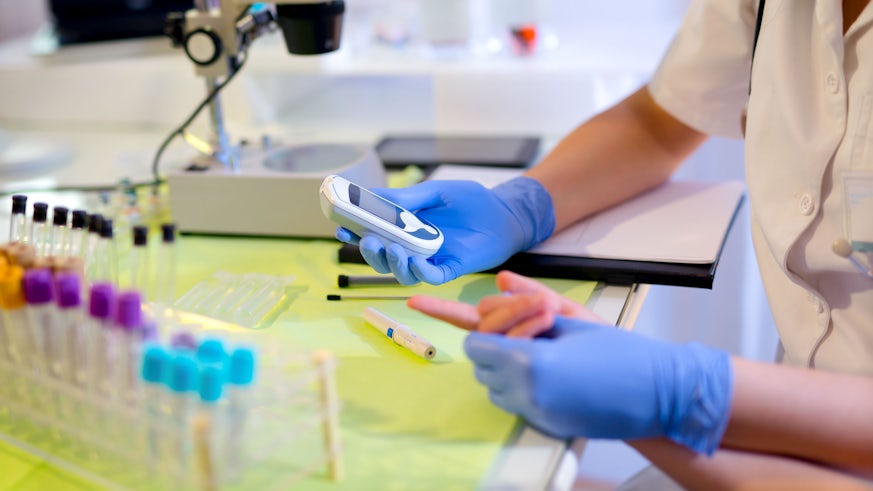Psoriasis drug shows promise for treating childhood diabetes
30 July 2024

A drug that is currently used for the treatment of psoriasis has been found to be effective in treating the early stages of type-1 diabetes in children and adolescents, finds a new clinical trial led by Cardiff University.
The new study has shown that Ustekinumab, an established immunotherapy that has been used to treat psoriasis since 2009, is effective in preserving the body’s ability to produce insulin in type-1 diabetes - bringing the goal of managing type-1 diabetes without insulin a step closer.
The study by Cardiff University, Kings College London, Swansea University and the University of Calgary, unlocked new insights into identifying the specific immune cells (Th17 cells) that cause type-1 diabetes and further established a role for immunotherapies in curbing the destruction of insulin-producing cells.
The clinical trial tested the psoriasis treatment in 72 adolescents between the ages of 12 and 18 with recent-onset type-1 diabetes. The findings from the study have been published in Nature Medicine July 30 2024.
Type-1 diabetes occurs when the body’s immune system attacks and destroys the cells of the body that produce insulin. This eventually leaves the person dependent on insulin injections. Researchers are now developing ways to slow or halt the immune system attack. If such treatments can be started early, before all the insulin-making cells are lost, this could prevent or reduce the need for insulin.
Researchers hope that immunotherapy will provide answers to patients in the future, targeting the body’s immune system to slow down the destruction of the cells that produce insulin. This treats the underlying immune process rather than correcting insulin levels.
Ustekinumab is an injection treatment which patients can give themselves at home, used effectively in the treatment of more than 100,000 patients with immune conditions, including severe psoriasis, psoriatic arthritis, severe Crohn’s disease and severe ulcerative colitis. This study demonstrated that Ustekinumab can also preserve vital insulin-producing cells. The researchers also identified the specific immune cells that cause this destruction, enabling precise and targeted therapies to maximise benefits and minimise side effects.
Professor Tim Tree, King's College London, said: “We have found that Ustekinumab reduces the level of a tiny group of immune cells in the blood called Th17.1 cells. These cells make up only 1 in 1000 of blood immune cells, but they seem to play an important role in destroying insulin producing cells. This explains why Ustekinumab has so few side-effects. It targets the trouble-making cells, while leaving 99% of the immune system intact – a great example of precision medicine”.

We tested this treatment in children and adolescents who already needed insulin treatment. It would be better if we could treat them at an earlier stage, while the children are still well, and prevent them needing insulin. Thankfully, Ustekinumab has a good enough safety record to be considered for use in children at this early stage.
The use of Ustekinumab was shown to decrease the destructive impact of Th17 immune cells on cells that produce insulin. After 12 months of using Ustekinumab, the researchers found that C-peptide levels - a sign that the body is producing insulin - were 49% higher. This clinical trial also provides the first clinical trial-based evidence for the role Th17 cells in type-1 diabetes.
While the trial demonstrates the benefit of using Ustekinumab to treat type-1 diabetes, further clinical trials are required to confirm this finding and to work out which patients would benefit most from the treatment.
It is now possible with a simple finger-prick antibody test to detect children who will develop type-1 diabetes years before they need insulin. Combining screening in this way with early treatment with Ustekinumab seems a very promising approach to preventing the need for insulin. Further trials will be needed to confirm this.
The research, Ustekinumab for type 1 diabetes in adolescents: a multicenter, double-blind, randomized phase 2 trial, was published in Nature Medicine. The study was funded by a National Institute for Health and Care Research and Medical Research Council partnership.



